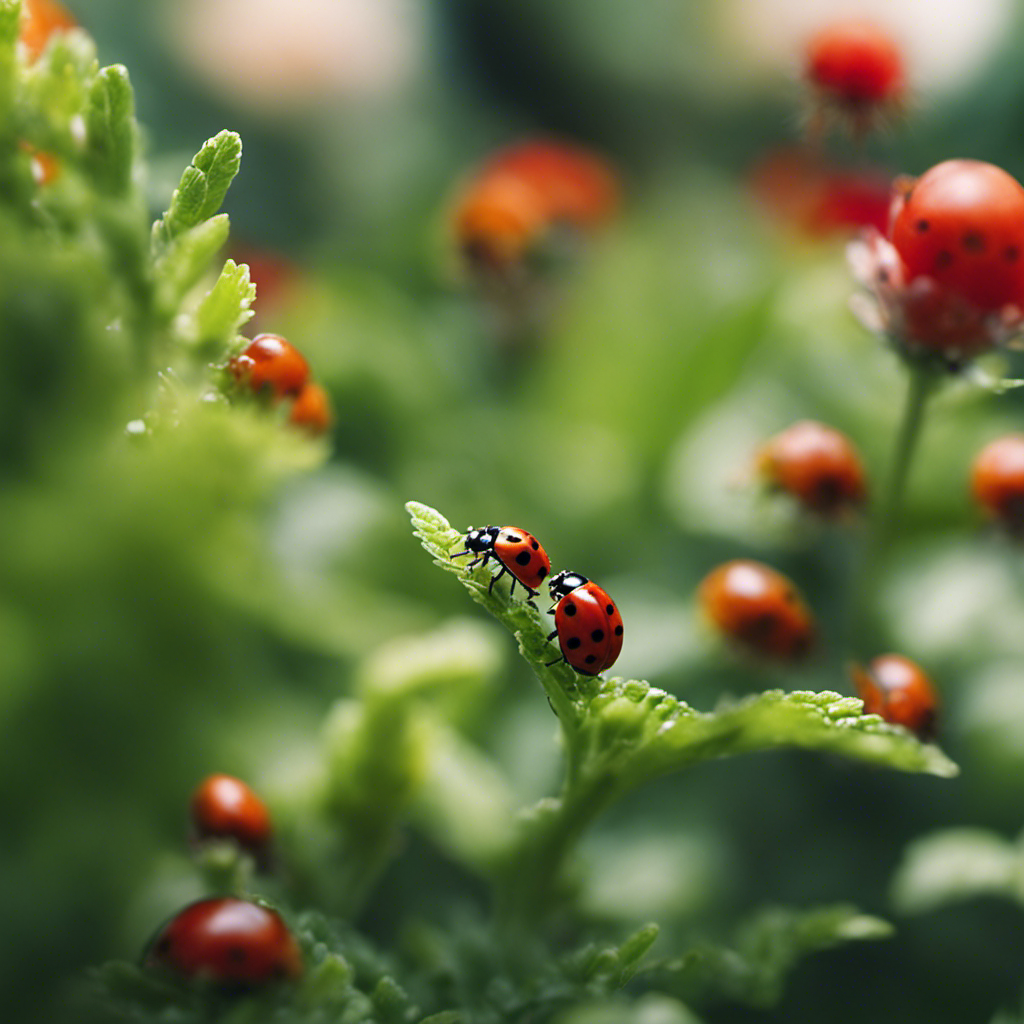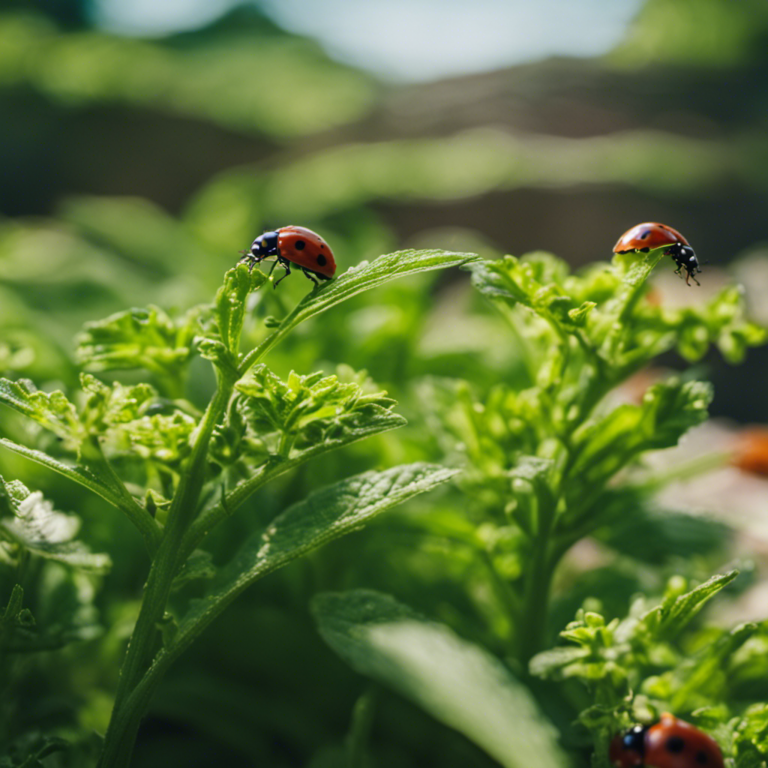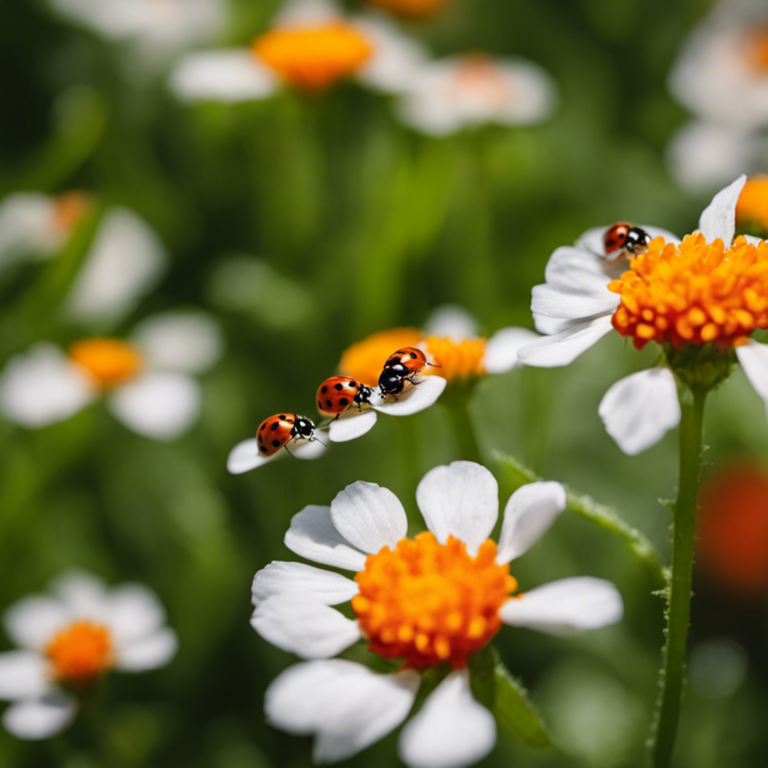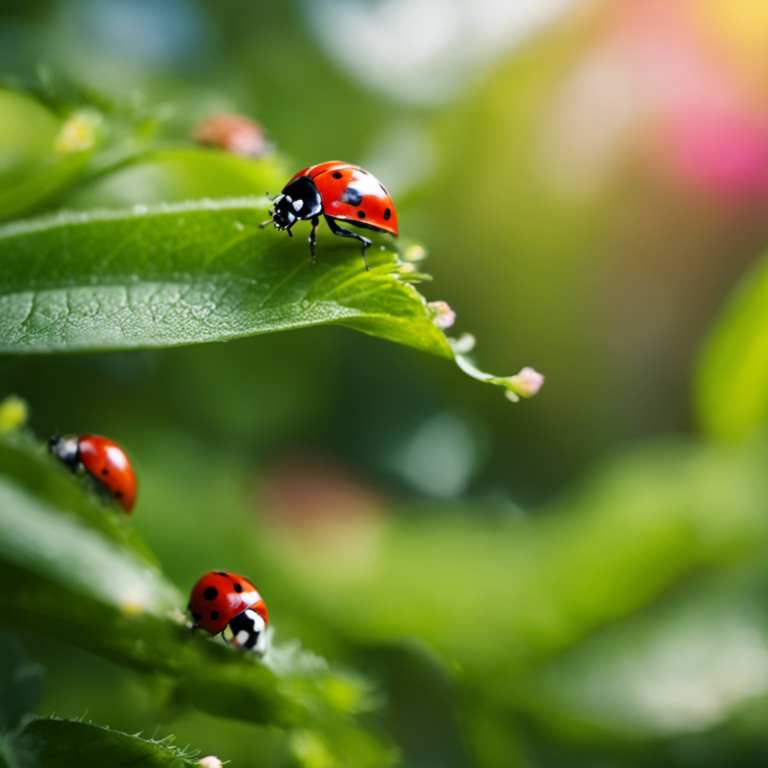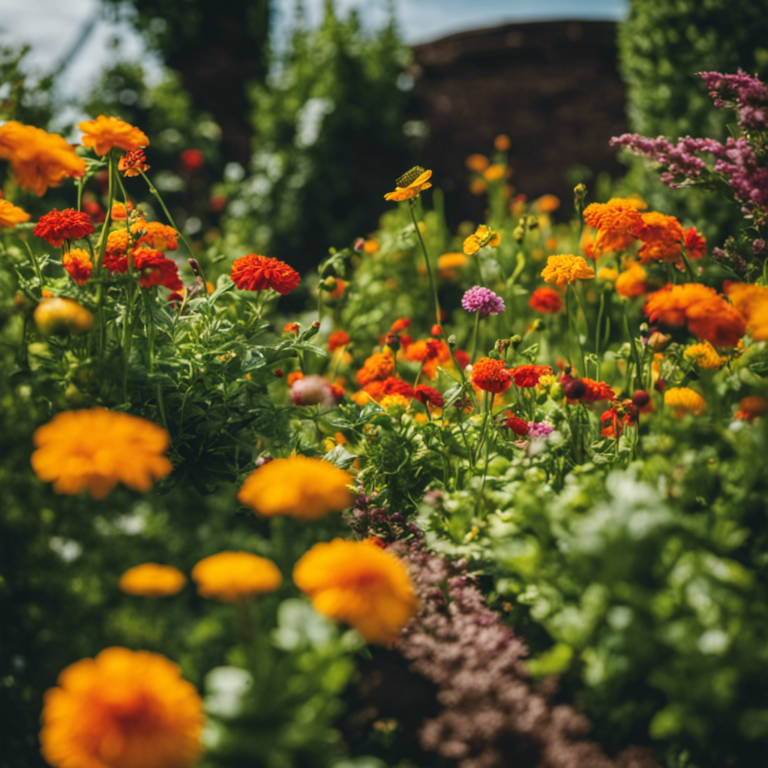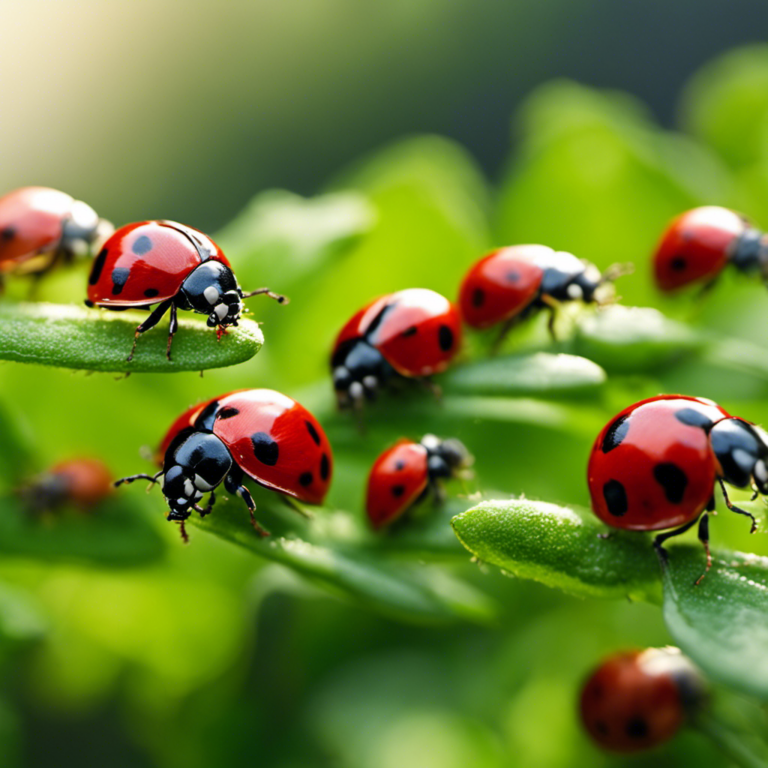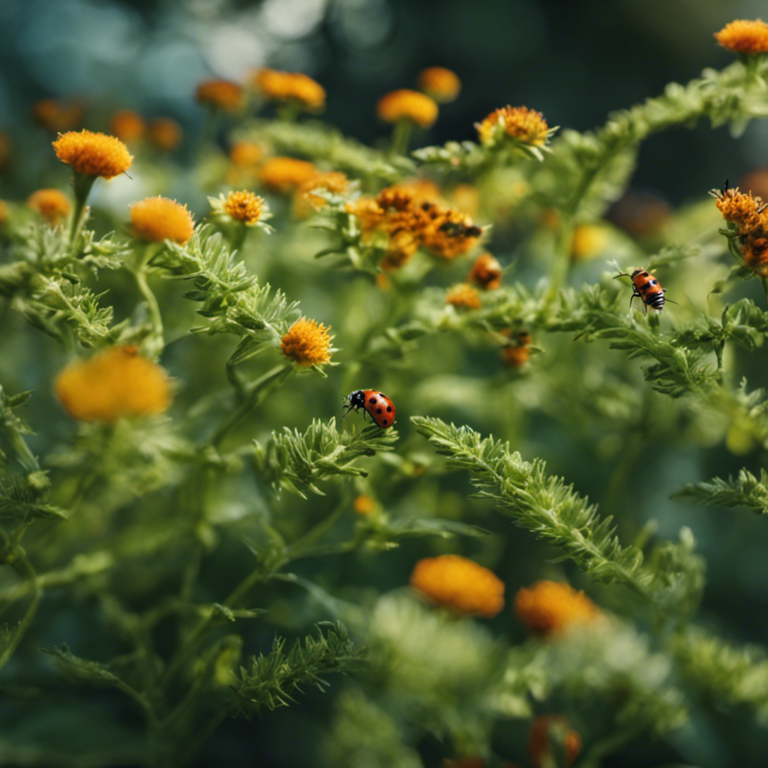Did you know that the majority of traditional pest control methods contain harmful chemicals that can seep into your herbs?
It’s time to take charge of your garden and protect your precious herbs naturally! In this article, we will explore the world of organic pest control and discover effective techniques to keep pests at bay.
From companion planting to homemade pest repellents, we will provide you with the knowledge to create a healthy and thriving herb garden.
Bid farewell to harmful chemicals and welcome the benefits of natural pest control!
Key Takeaways
Protect Your Herbs Naturally with Organic Pest Control
Organic pest control methods offer a safe and effective way to safeguard your herbs. Instead of resorting to harmful chemicals, you can utilize companion planting, homemade pest repellents, attracting beneficial insects, and physical barriers to ward off pests and protect your plants.
Did you know that companion plants can significantly increase herb yield? By implementing these organic pest control techniques, you not only ensure the health and safety of your herbs but also support a thriving and sustainable garden ecosystem. It’s a natural and environmentally friendly approach to pest management that brings numerous benefits to your garden.
Companion Planting
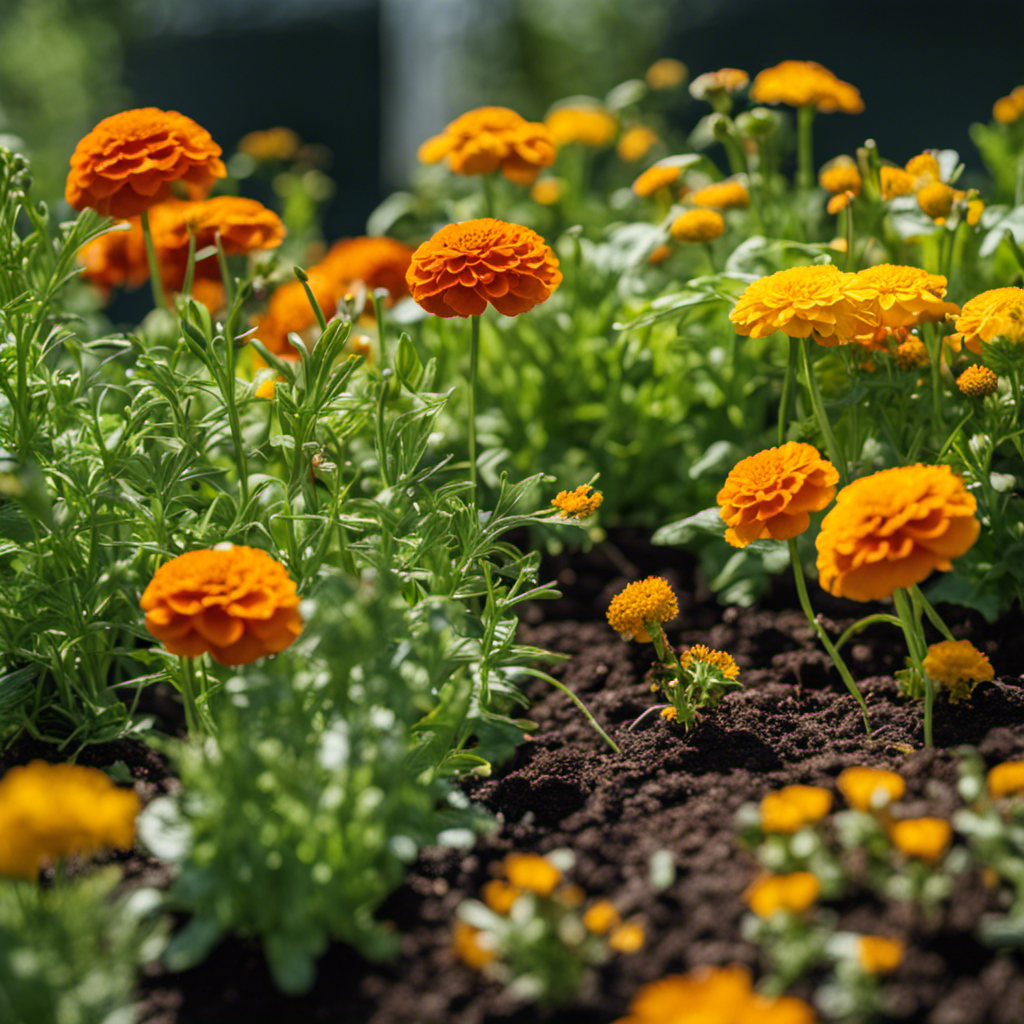
Utilizing companion planting in your herb garden can be an effective method for organic pest control. By strategically placing certain plants together, you can create an environment that naturally repels pests and enhances the growth of your herbs.
One important aspect of companion planting is crop rotation. By rotating your crops each year, you can prevent the buildup of pests and diseases in the soil, reducing the need for chemical interventions.
Another technique is intercropping, which involves planting different types of plants together to maximize space and deter pests. For example, planting marigolds alongside your herbs can help repel aphids and other common garden pests. Similarly, planting garlic and onions can deter insects such as aphids and carrot flies.
Homemade Pest Repellents
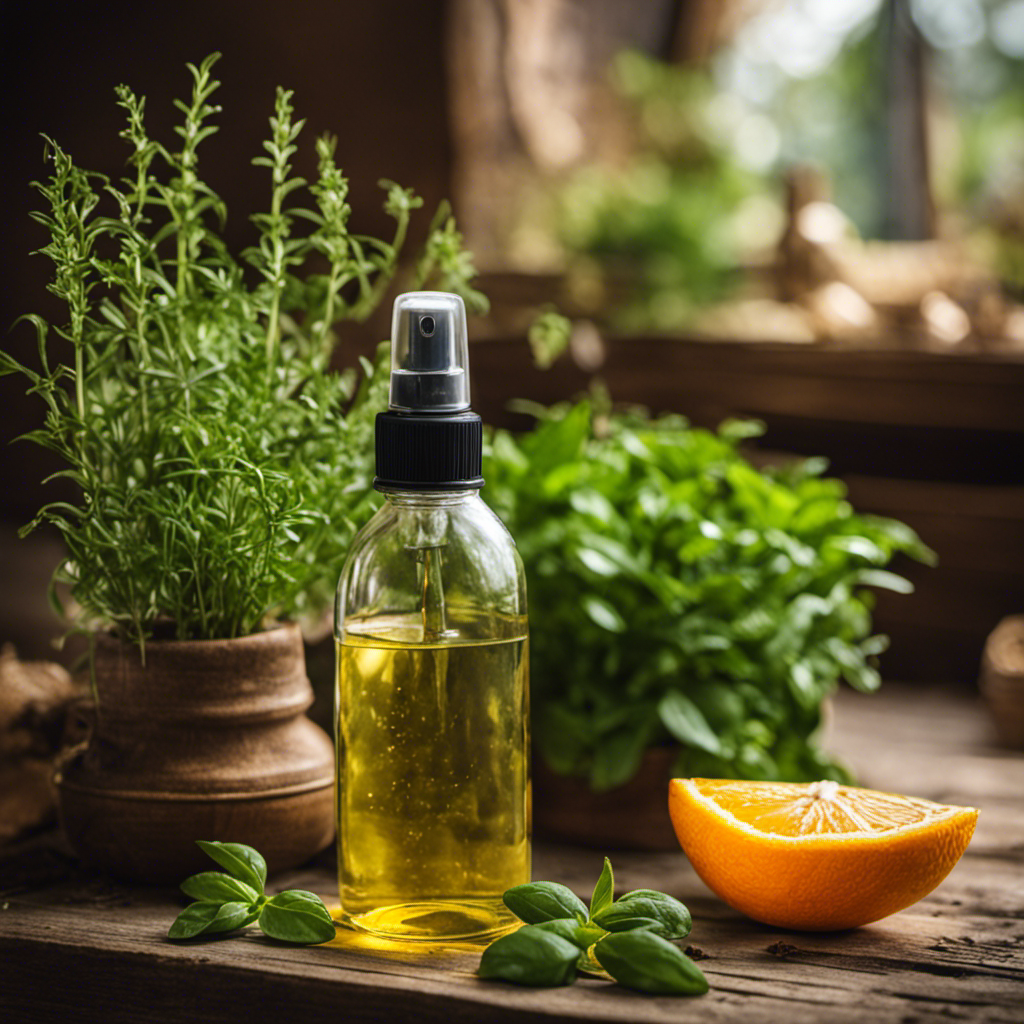
Protecting your herbs naturally from pests can be achieved by creating homemade pest repellents. These repellents are simple to make and utilize ingredients that are safe for both your herbs and the environment. Two popular options for homemade pest repellents include essential oils and vinegar solutions.
Essential oils such as peppermint, lavender, and rosemary have powerful scents that repel pests like aphids, mites, and beetles. By mixing a few drops of these oils with water, you can create a mixture that can be sprayed onto your herbs to keep pests away.
On the other hand, vinegar solutions made from a combination of vinegar and water can effectively deter pests like slugs, snails, and ants. Spray the vinegar solution around the base of your herbs to create a barrier that pests will not cross.
Here is a handy table summarizing the homemade pest repellents using essential oils and vinegar solutions:
| Pest Repellent | Essential Oils | Vinegar Solutions |
|---|---|---|
| Aphids | Peppermint | – |
| Mites | Lavender | – |
| Beetles | Rosemary | – |
| Slugs | – | Vinegar |
| Snails | – | Vinegar |
| Ants | – | Vinegar |
Beneficial Insects
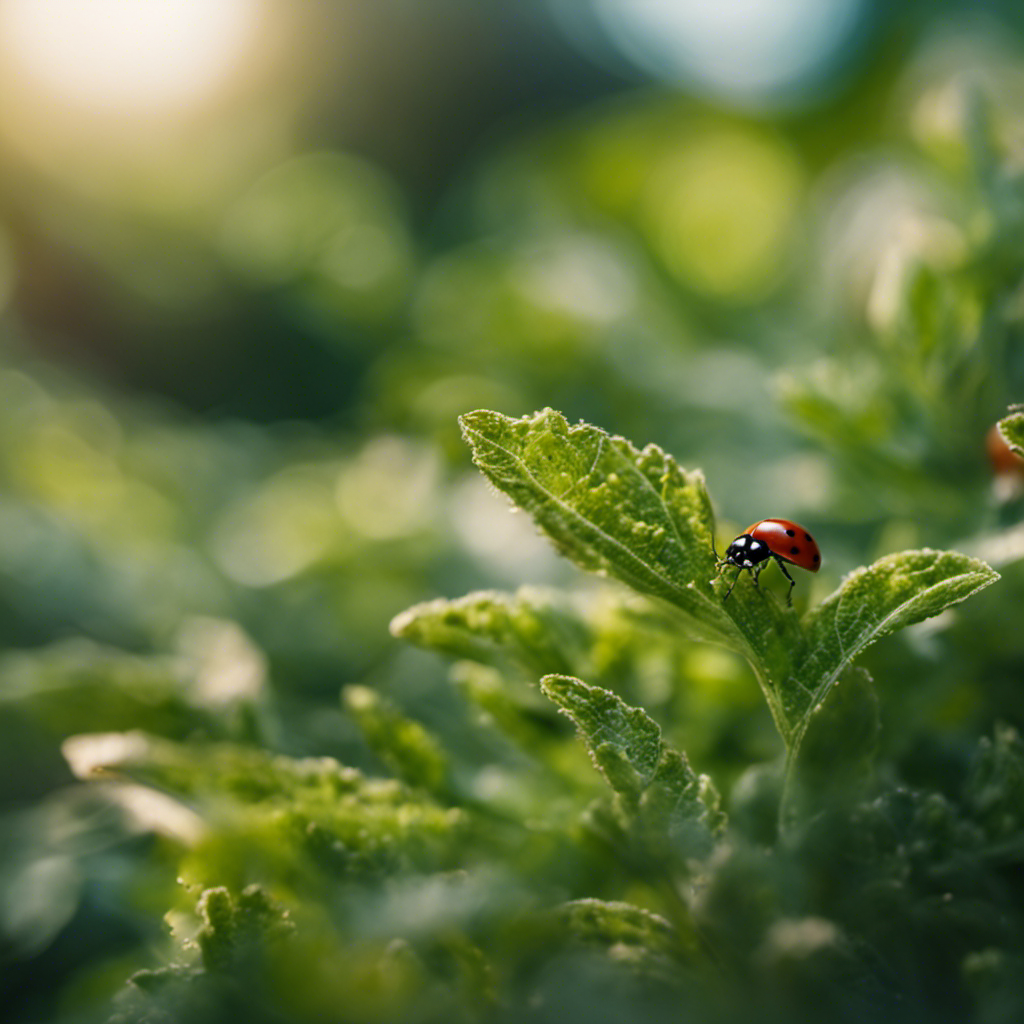
Beneficial insects play a vital role in protecting your herbs naturally by preying on the pests that can harm your plants. By attracting these helpful insects to your garden, you can create a balanced ecosystem that reduces the need for chemical pesticides.
One effective way to attract beneficial insects is by planting flowers that provide them with a food source or shelter. These flowers also have the added benefit of attracting pollinators like bees and butterflies, which are essential for the reproduction of many herb plants.
Another strategy to consider is crop rotation, where you plant different herbs in different areas of your garden each year. This disrupts the life cycle of pests, making it harder for them to establish and multiply.
Physical Barriers
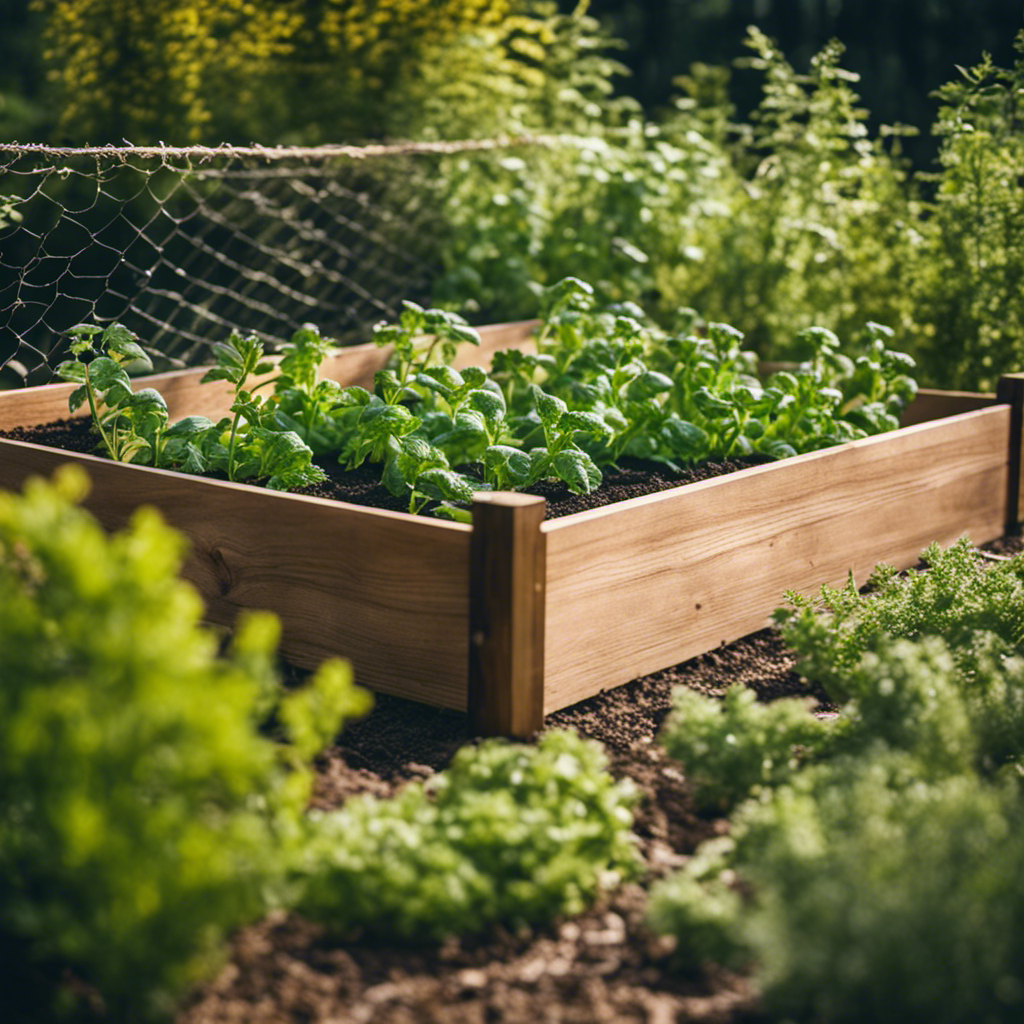
Protecting your herbs from pests can be achieved through the use of physical barriers. These barriers serve as a natural and effective way to keep insects and animals away from your precious herbs.
One approach is to utilize vertical gardens, which not only save space but also act as a protective shield. By growing your herbs vertically, you make it more difficult for pests to access them, as they’d need to climb or fly up to reach the plants.
Another method is crop rotation, where you regularly move your herbs to different locations in your garden. This disrupts the feeding patterns of pests and reduces the risk of infestation.
Physical barriers offer a proactive and sustainable solution to pest control, ensuring the health and vitality of your herb garden.
Natural Predators
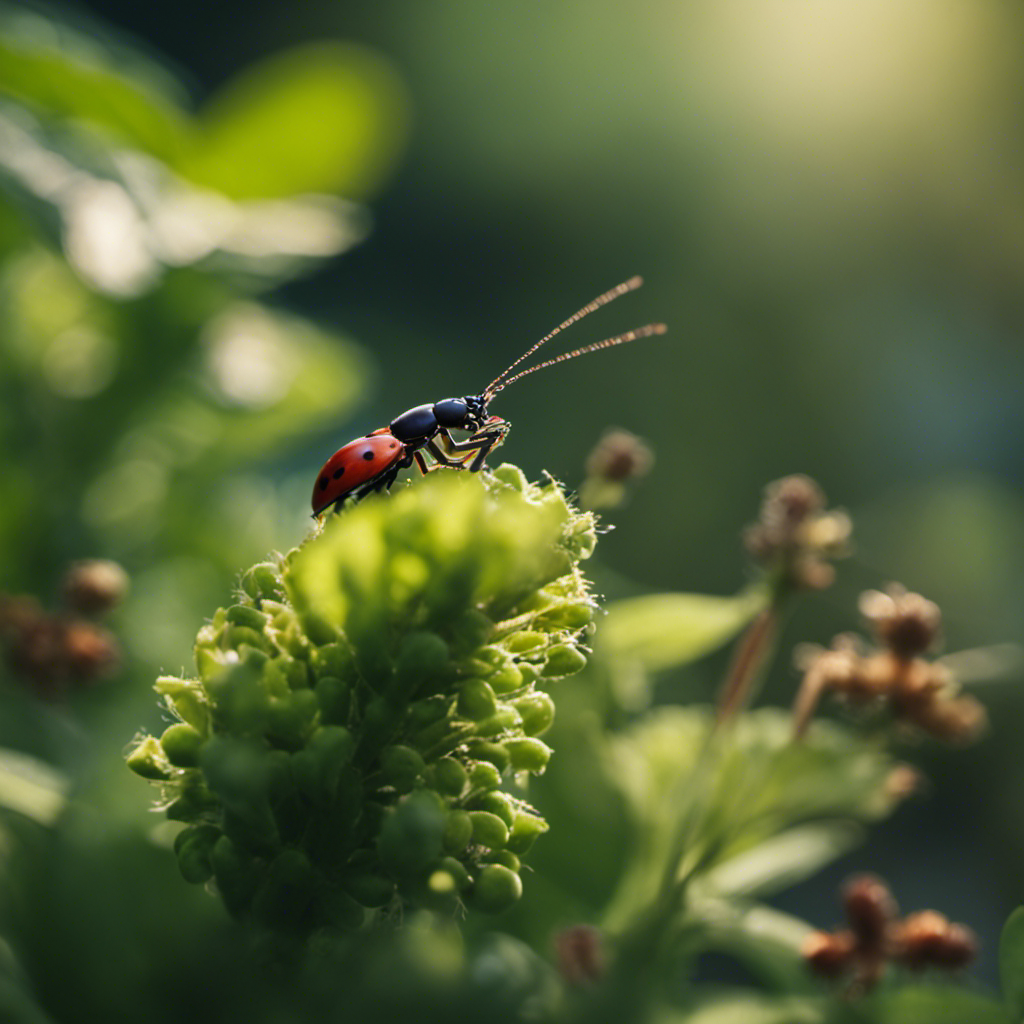
Protecting your herbs from pests can be achieved by attracting natural predators to your garden. This creates a balanced ecosystem and reduces the need for harmful chemicals. Here are four effective ways to attract natural predators and promote plant diversity:
-
Provide shelter: Incorporate features like birdhouses, bat boxes, and rock piles to create a welcoming environment for beneficial insects and animals.
-
Plant diversity: Cultivate a variety of plants in your garden to attract different species of predators. This will provide food and shelter for a wide range of beneficial insects and birds.
-
Water sources: Include a birdbath or small pond in your garden to attract predators that rely on water for survival. These water sources not only benefit the predators but also enhance the overall ecosystem.
-
Avoid pesticides: Minimize or eliminate the use of pesticides in your garden as they can harm natural predators and disrupt the balance of the ecosystem.
Conclusion
Organic pest control methods provide a natural and effective way to protect your herbs. Instead of using harmful chemicals, you can employ companion planting, homemade pest repellents, attracting beneficial insects, and physical barriers to prevent pests from damaging your plants.
Did you know that companion plants can increase herb yield by up to 40%? By implementing these organic pest control techniques, you not only ensure the health and safety of your herbs but also support a thriving and sustainable garden ecosystem.
